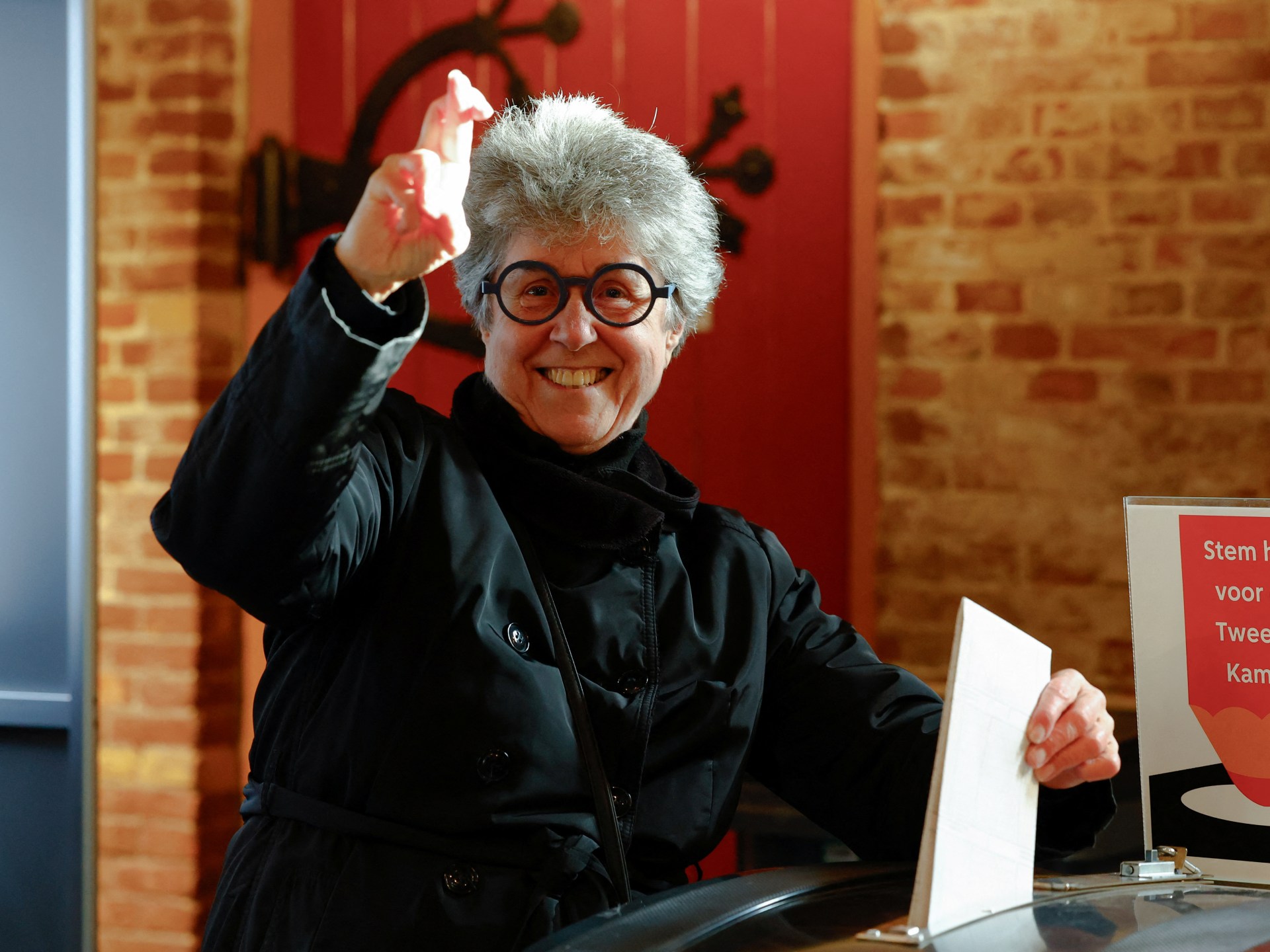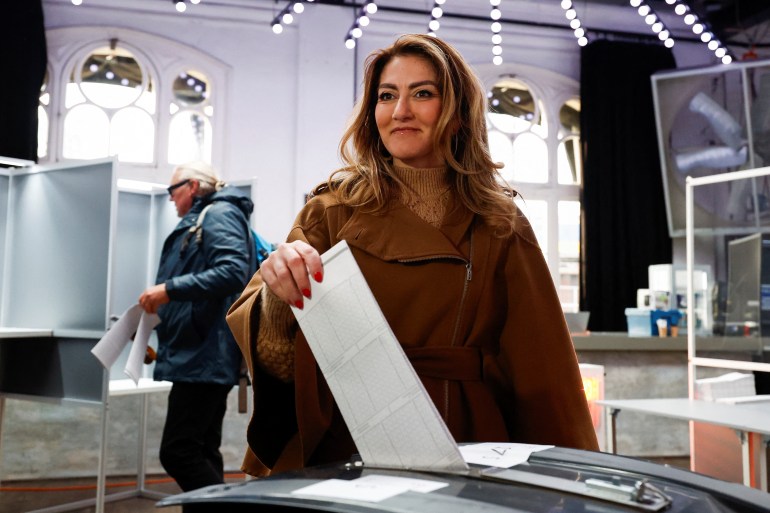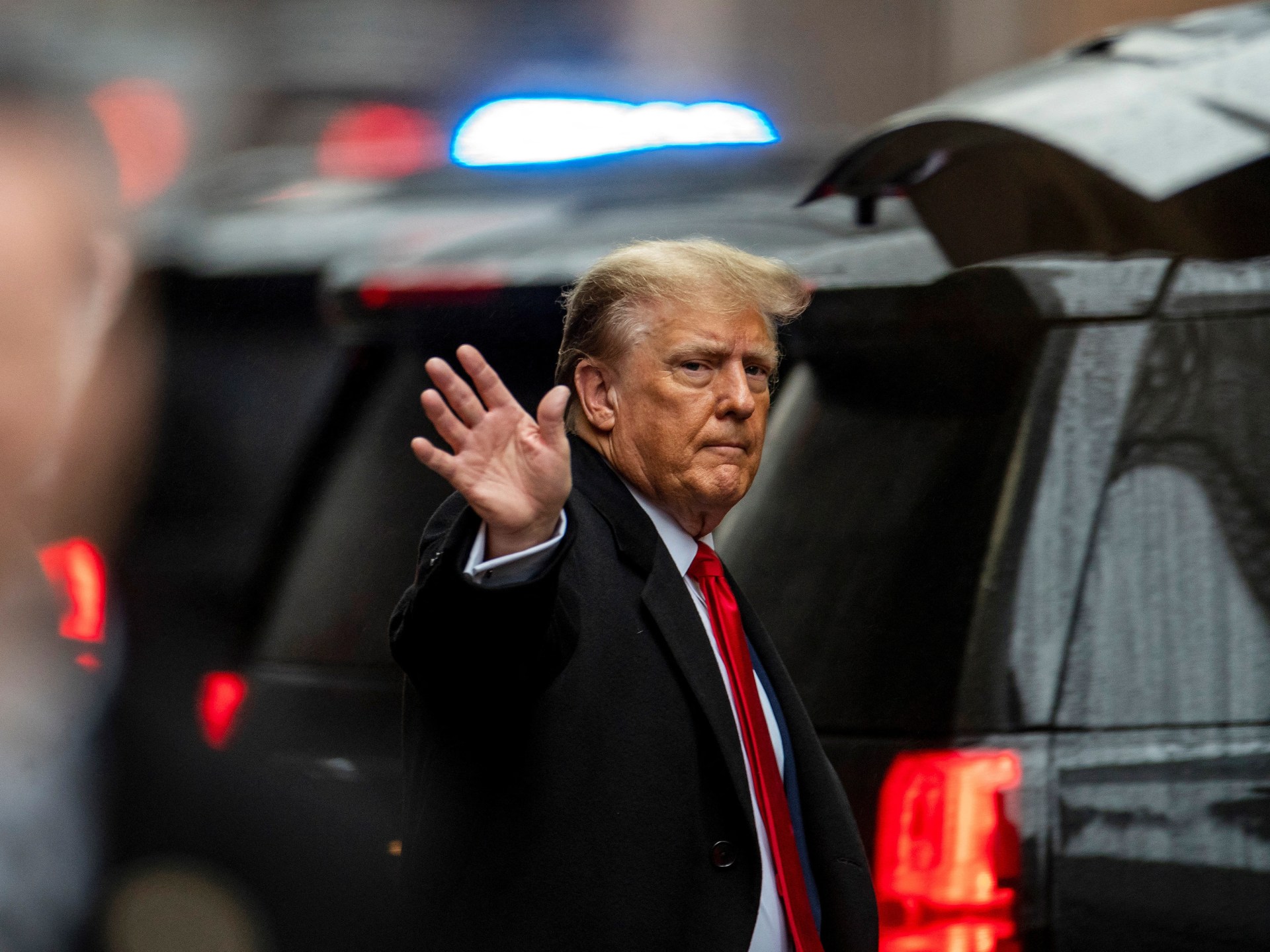
After Prime Minister Mark Rutte’s record-breaking 13 years in office, a knife-edge election is likely to shake up Dutch politics.
The Netherlands is holding hotly contested national elections, with a far-right party among the three serious candidates.
The vote is the culmination of a campaign focused on issues such as climate change and immigration. A poll published on the eve of Wednesday’s election found the conservative People’s Party for Freedom and Democracy (VVD) to be an Islamophobic figure Geert Wilders The Freedom Party (PVV) was tied at the top, closely followed by the Labor Party and the Green Left.
The immigration restriction – the issue that triggered the Prime Minister’s collapse Mark Rutte’s government – was a central theme of the campaign.
“Now it’s enough. The Netherlands can’t take it anymore. We must now think of our own people first. Borders closed. Zero asylum seekers,” Wilders said in a television debate.
Voting took place at polling stations including the Anne Frank and Van Gogh Museums in Amsterdam, clubs, train stations and even a petting zoo.
“For me it’s a slightly different choice because anyone can win. In the end it came down to two candidates. I flipped a coin and chose one,” Vincent Spijker, a 54-year-old quality control manager, told Agence France-Presse news agency after casting his vote.
The election will give the Netherlands its first new prime minister in 13 years after Rutte ended his term as the country’s premier longest serving leader.
A poll on Tuesday showed Wilder’s party slightly ahead of Rutte’s VVD and a centre-left Labor and Green Left bloc led by Labor leader Frans Timmermans.
Running to replace Rutte from his VVD is Justice Minister Dilan Yesilgoz, a Turkish immigrant who has a restrictive approach to immigration but wants to distance herself from Wilders and hopes to become the country’s first female prime minister.
“Maybe she can blow a new wind,” 67-year-old Maria Tolman, who voted for VVD, told Reuters.
With the Netherlands a founding member of the European Union, other EU leaders will closely scrutinize the outcome as right-wing parties have indicated they would seek exemptions from EU rules on agriculture and immigration.

A self-proclaimed fan of Hungarian Prime Minister Viktor Orban, Wilders is explicitly anti-EU, calling on the Netherlands to take back control of its borders, significantly cut its payments to the union and block new members from joining.
He has also repeatedly said that the Netherlands should stop supplying weapons to Ukraine because it needs the weapons to defend itself. However, none of the parties with which he could potentially form a government share these ideas.
Still, a strong showing from Wilders could potentially push the Netherlands toward a far-right coalition with a strong anti-immigrant line.
“I hope I don’t wake up tomorrow and we have Wilders as prime minister. This is a nightmare,” Amsterdam resident Arie van der Neut told Reuters after casting his vote for the pro-European center-left Volt party.






Recent Comments